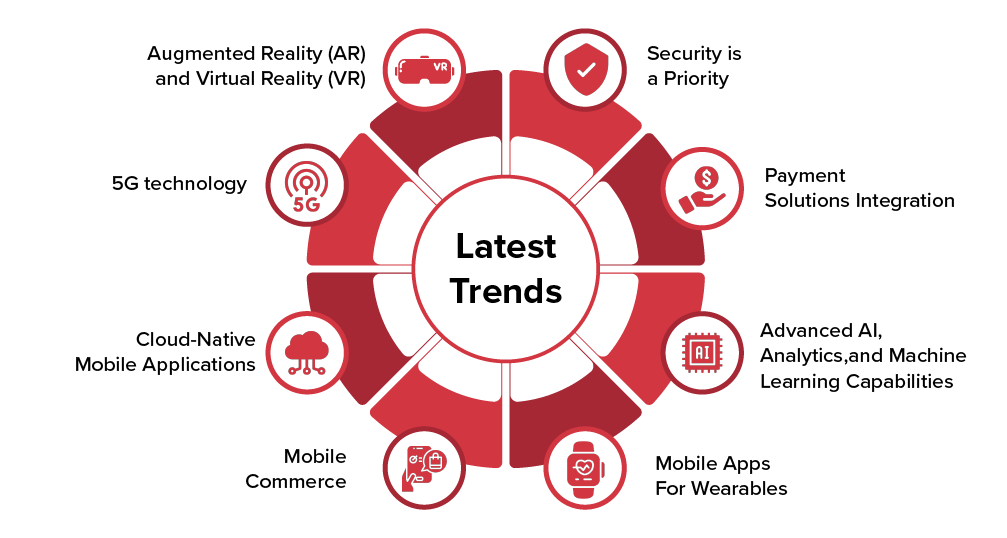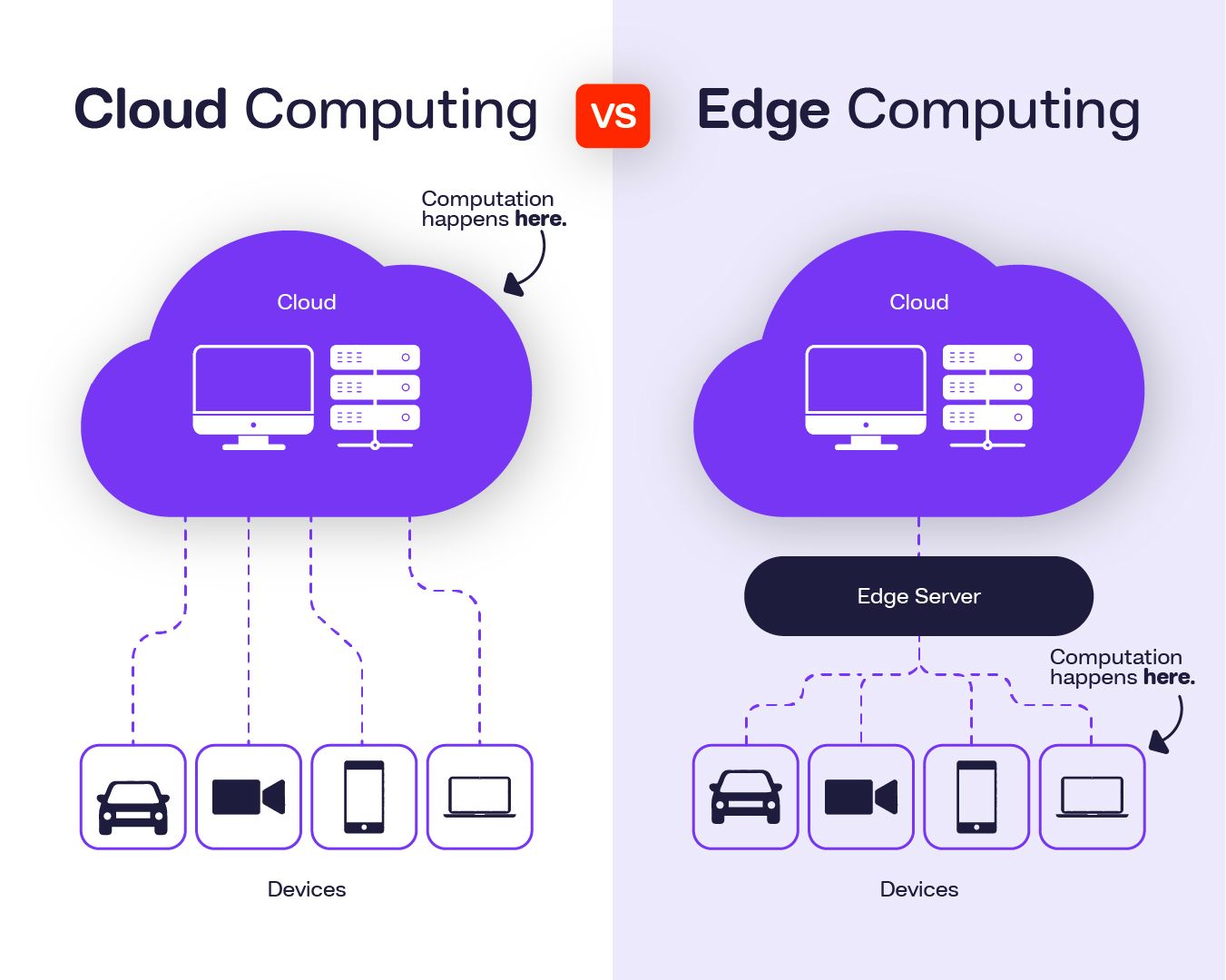The mobile app industry is transforming faster than ever, redefining how we live, work, and connect. For developers and businesses, keeping up with emerging trends in 2025 is not just an advantage it’s a necessity. From groundbreaking AI integrations to sustainable development practices, these innovations promise to reshape the digital landscape.
This article dives into the key trends driving the future of mobile app development, offering actionable insights to help you stay ahead in a competitive and dynamic field. Let’s explore the possibilities together.
Emerging Trends in Mobile App Development for 2025

AI and Machine Learning Integration
Artificial intelligence (AI) and machine learning (ML) are revolutionizing mobile apps by delivering advanced personalization and predictive analytics. Apps are now capable of learning user behavior to adapt interfaces and content dynamically, providing seamless and intuitive experiences.
Real-World Examples
- Virtual Assistants: AI-powered assistants like Siri and Google Assistant continue to evolve, offering smarter and more contextual interactions.
- Adaptive Interfaces: Apps that adjust layouts and features based on individual user preferences are gaining traction, enhancing usability.
Why It Matters: By leveraging AI and ML, developers can create apps that not only meet user expectations but anticipate their needs, leading to increased engagement and satisfaction.
Discover More: Want to see how AI is already transforming the world? Dive deeper into the AI revolution and explore real-world examples shaping industries today. Click here to read the full article on AI Revolution and its Impact.
5G-Powered Experiences
The rollout of 5G technology is a game-changer for mobile apps, enabling faster speeds, reduced latency, and richer user experiences. This technology unlocks new possibilities for augmented reality (AR), virtual reality (VR), and high-quality streaming services.
Key Benefits
Enhanced Performance: Apps can load data-intensive content quickly, ensuring a smoother experience.
AR/VR Applications: 5G enables real-time rendering, making AR and VR apps more immersive and responsive.
Improved Streaming: High-definition video and gaming apps benefit from uninterrupted, high-speed connections.
Why It Matters: 5G technology allows developers to push the boundaries of what mobile apps can achieve, delivering unparalleled functionality and engagement.
Ready to build your next mobile app? Explore our expert mobile development services and stay ahead of the curve in 2025. Get started today!
Cross-Platform Development Evolution
Cross-platform frameworks are becoming increasingly sophisticated, enabling developers to create apps that work seamlessly across multiple operating systems. Frameworks like Flutter, React Native, and .NET MAUI are at the forefront of this evolution, offering tools to reduce development time and cost.
Advantages
Cost-Effectiveness: A single codebase can be used to deploy apps on both iOS and Android, saving time and resources.
Faster Time-to-Market: Streamlined development processes allow for quicker launches, keeping businesses competitive.
Improved User Experience: Advances in these frameworks ensure consistent performance and design across platforms.
Why It Matters: Cross-platform development enables businesses to reach broader audiences without compromising on quality, making it a critical trend for developers to embrace.
Focus on Privacy and Security
As users become increasingly aware of data privacy, apps in 2025 must prioritize secure and transparent practices. Compliance with global regulations like GDPR and CCPA, coupled with the integration of robust security measures, is essential to maintaining user trust.
Key Strategies
End-to-End Encryption: Protecting user data through encryption ensures that sensitive information remains secure.
Secure SDKs: Utilizing trusted software development kits helps minimize vulnerabilities.
Decentralized Technologies: Blockchain and similar technologies provide enhanced security by eliminating single points of failure.
Why It Matters: Privacy and security are no longer optional; they are vital for user retention and regulatory compliance, making them a central focus for app development in 2025.
Rise of Super Apps
Super apps, which integrate multiple services into a single platform, are on the rise, following the success of models like WeChat in China. These apps offer everything from messaging and payments to food delivery and e-commerce, creating a one-stop solution for users.
Benefits for Users and Developers
Convenience: Users enjoy seamless access to a variety of services without downloading multiple apps.
Increased Engagement: Developers benefit from higher user retention rates and more frequent interactions.
New Revenue Streams: Integrated services create opportunities for in-app purchases, subscriptions, and advertising.
Global Impact: While super apps dominate in Asia, their influence is spreading to other markets, encouraging developers worldwide to explore similar models.
Why It Matters: The rise of super apps highlights the demand for integrated solutions, pushing developers to think beyond single-use functionalities.
Wearable and IoT Integration
The rise of wearable devices and IoT ecosystems is shaping how apps interact with our daily lives. From smartwatches to connected home devices, users expect seamless app experiences tailored to their gadgets.
In 2025, apps will increasingly cater to these interconnected ecosystems. Developers will focus on creating solutions that enhance convenience, productivity, and health monitoring. For example, fitness apps will synchronize with smartwatches to deliver real-time insights, while smart home apps will integrate with IoT devices to offer smarter automation.
This trend is particularly impactful in industries like healthcare and fitness. Apps tailored for wearables will support remote health monitoring, enabling users and professionals to track critical health data like heart rate or sleep patterns. Similarly, smart home apps will simplify routines, such as adjusting thermostats or managing security systems with just a tap.
To stay competitive, developers must prioritize compatibility with a wide range of IoT devices, ensuring their apps are adaptable, user-friendly, and aligned with this expanding ecosystem.
Sustainability and Green App Development
As consumers become more eco-conscious, the demand for sustainable technologies is reshaping industries, including mobile app development. In 2025, creating environmentally friendly apps will be essential for staying relevant in the market.
Developers are embracing green coding practices, focusing on optimizing app performance to minimize energy consumption and extend battery life. Additionally, cloud-based solutions are gaining traction as power-efficient alternatives to traditional systems.
Businesses that align their apps with eco-conscious values, such as promoting recycling or reducing waste, can meet consumer expectations while fostering brand loyalty. By prioritizing sustainability, developers and companies can contribute to a greener future while maintaining a competitive edge.
Key Technologies Driving These Trends
Several technologies are at the forefront of mobile app development in 2025, enabling innovation and enhancing user experiences.
- Artificial Intelligence (AI) and Machine Learning (ML): These technologies are driving advanced personalization, predictive analytics, and smarter app interactions. For example, AI-powered chatbots and recommendation systems are now standard features.
- Augmented Reality (AR) and Virtual Reality (VR): Immersive experiences for gaming, retail, and education are made possible through AR/VR integrations. As hardware becomes more accessible, these technologies will see widespread adoption.
- Blockchain: Beyond cryptocurrencies, blockchain is being utilized for secure transactions, data privacy, and decentralized app solutions, appealing to users prioritizing security.
- Low-Code and No-Code Platforms: These tools are streamlining app development, empowering developers and non-developers alike to create functional apps faster and more efficiently.
- 5G Connectivity: With faster speeds and lower latency, 5G is unlocking possibilities for high-performance apps, especially in areas like real-time streaming and IoT integration.
By leveraging these technologies, developers can create innovative apps that meet the demands of tomorrow’s users.
Challenges in 2025 Mobile App Development
- Fragmentation in Devices and Operating Systems: With a growing variety of devices, screen sizes, and operating systems, ensuring app compatibility and a consistent user experience will be increasingly difficult.
- Rising Costs of Innovation: As users expect more advanced features and higher-quality apps, development costs will continue to climb, making it crucial for businesses to balance budgets without sacrificing quality.
- Balancing User Experience with Privacy and Security: Stricter regulations like GDPR and CCPA demand greater emphasis on data privacy. Developers must implement robust security measures while maintaining seamless user experiences.
Predictions and Actionable Insights
- Skill Development for Developers: Emphasize expertise in AI, AR/VR, and blockchain technologies. Staying updated with low-code and no-code platforms can also improve efficiency and speed.
- Focus on User-Centric Design: Prioritize intuitive and accessible interfaces while maintaining robust security features to meet consumer demands for seamless and safe experiences.
- Adopt Agile Business Models: Flexibility in development and monetization strategies is essential. For instance, exploring subscription-based models or freemium approaches can help maximize revenue while appealing to a broader user base.
- Leverage Data Analytics: Use predictive analytics to anticipate user needs and improve engagement. Data-driven insights will be a key differentiator in delivering personalized experiences.
FAQ
What are the top trends shaping the future of mobile app development in 2025?
In 2025, mobile app development is driven by AI, augmented reality (AR), and wearable tech. Apps are becoming more personalized and intuitive, leveraging machine learning to predict user behavior. Cross-platform development tools and cloud integration are also enhancing efficiency, enabling faster development cycles.
How is AI transforming mobile app development in 2025?
AI is revolutionizing mobile app development by enabling more intelligent user experiences. From personalized content to voice recognition and predictive text, AI enhances app functionality. It also streamlines backend processes, making apps smarter and more responsive to user needs.
What is the impact of 5G on mobile app experiences in 2025?
With 5G, mobile apps can offer faster speeds, lower latency, and more reliable connections. This opens doors for real-time streaming, advanced AR/VR experiences, and seamless cloud gaming. Apps will become more immersive and responsive, enhancing user engagement.
What challenges will mobile app developers face in 2025, and how can they overcome them?
Developers will face challenges like security risks, data privacy concerns, and keeping up with rapidly evolving technologies. Staying updated with the latest trends, implementing robust security protocols, and focusing on user-centric design will help developers overcome these obstacles.
What skills should developers acquire to stay competitive in mobile app development in 2025?
Developers should focus on mastering AI and machine learning, understanding 5G technology, and getting familiar with AR/VR tools. Knowledge of cross-platform development frameworks and cloud technologies will also be essential for staying competitive in the evolving mobile app landscape.
Conclusion
The future of mobile app development in 2025 promises innovation and growth. By embracing emerging technologies, prioritizing sustainability, and addressing challenges like device fragmentation and security, developers can stay ahead. The actions taken today will define the apps that shape tomorrow’s digital experiences.



No comment